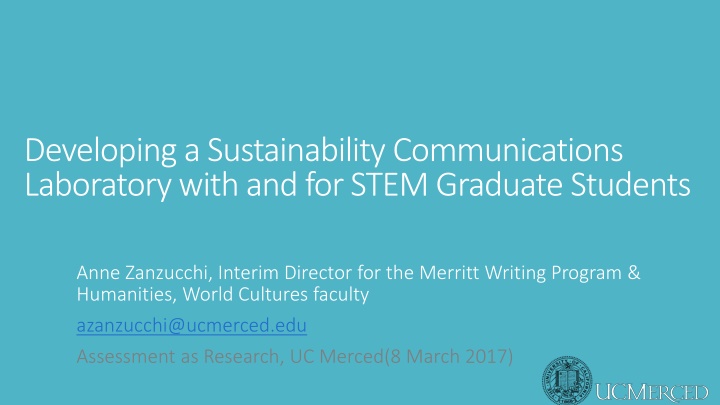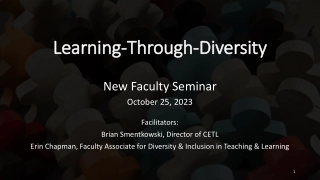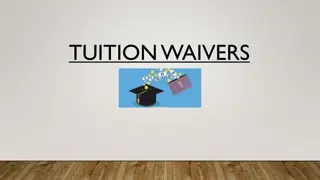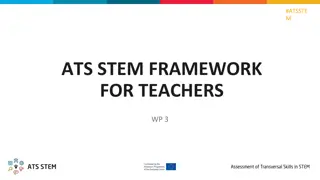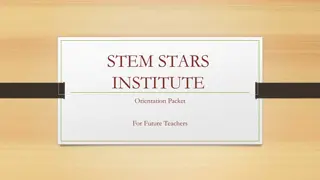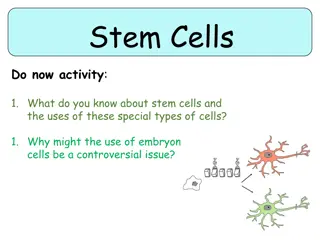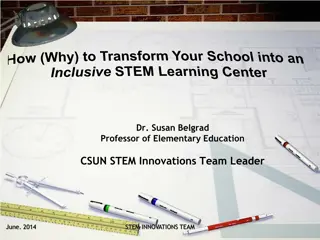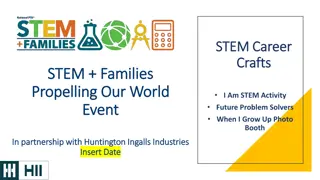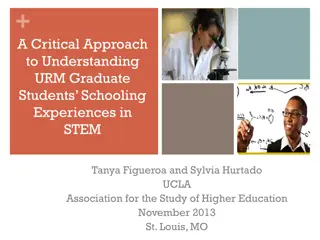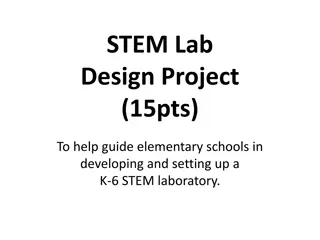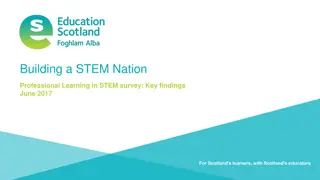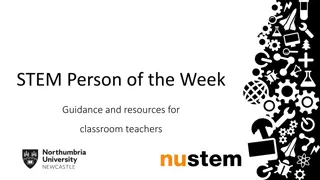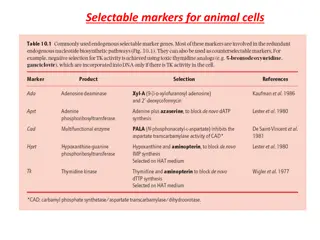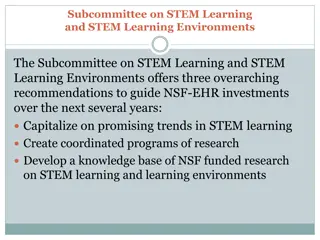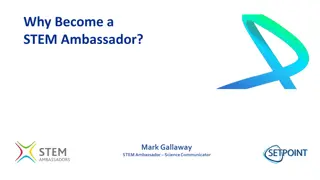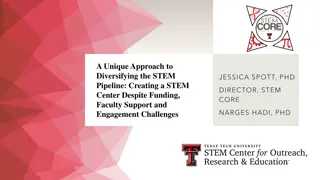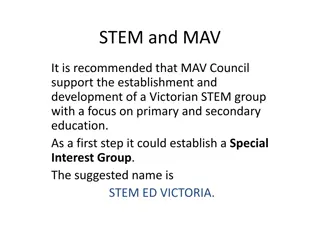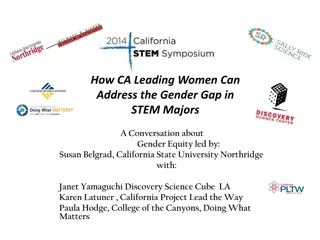Developing Sustainability Communications Laboratory for STEM Graduate Students
Anne Zanzucchi discusses motivations behind a graduate curriculum with sustainability themes and the design of a communication laboratory for STEM graduate students. Assessment stages and system-wide context are explored, emphasizing academic planning and shared concepts on sustainability in campus teaching and research. Goals and outcomes for students encompass knowledge of food, energy, waste, cultural dimensions, and sustainable practices, encouraging creative expression and civic engagement.
Download Presentation

Please find below an Image/Link to download the presentation.
The content on the website is provided AS IS for your information and personal use only. It may not be sold, licensed, or shared on other websites without obtaining consent from the author.If you encounter any issues during the download, it is possible that the publisher has removed the file from their server.
You are allowed to download the files provided on this website for personal or commercial use, subject to the condition that they are used lawfully. All files are the property of their respective owners.
The content on the website is provided AS IS for your information and personal use only. It may not be sold, licensed, or shared on other websites without obtaining consent from the author.
E N D
Presentation Transcript
Developing a Sustainability Communications Laboratory with and for STEM Graduate Students Anne Zanzucchi, Interim Director for the Merritt Writing Program & Humanities, World Cultures faculty azanzucchi@ucmerced.edu Assessment as Research, UC Merced(8 March 2017)
Overview o Motivations for graduate curriculum with sustainability themes o Concepts and desired outcomes of this graduate communication laboratory design
Assessment Stages Set goals and outcomes Develop and implement planning Evaluate results Create action plan
System-wide Context o UC Office of the President initiated the Carbon Neutrality project http://www.ucop.edu/initiatives/carbon-neutrality-initiative.html o Project includes the Climate and Sustainability Resource Library with learning materials related to climate change and sustainability. http://cserl.ucop.edu/
Start with the Beginning Academic Planning Activities o Cross-disciplinary retreat o Mission statement o Sustainability learning outcomes *Themes and cross-disciplinary imagination can drive inclusive, comprehensive academic planning*
Set goals and outcomes: Shared Concepts What is sustainability (in campus teaching and research)? o education o social justice o culture o efficiency o resource management o closed loops o dynamic system o action Sustainability involves Sustainability involves informed action, reflecting, informed action, reflecting, and contributing toward and contributing toward dynamic systems. dynamic systems. This collaborative process for developing criteria is based on Bob Broad s Organic Writing Assessment: Dynamic Criteria in Action (2009). The open access copy is at http://digitalcommons.usu.edu/usupress_pubs/165/
Set goals and outcomes: What should our students know and be able to do? 1. Know where food, water, and energy come from, and where waste goes. 2. Understand waste streams and means of repurposing or reducing them. 3. Elaborate the cultural and historical dimensions within dynamic (eco)systems. 4. Apply appropriate quantitative and qualitative reasoning to the analysis of complex systems. 5. Engage in research, learning, and service experiences involving sustainable practices. 6. Contribute to creative expression and civic engagement about sustainability (and its limits). 7. Describe drivers, consequences and solutions regarding environmental change from local to global scales. 8. Take ethical action as responsible world citizens.
Modules include: Curriculum Development o Proposing and Marketing Scientific Projects: How are scientific concepts accepted? o Sustainability Research Stories: Identify sustainability themes in our current research o Project(s) development: Create a short genre project suited for social context and topic
Intersections: A Writing Studies Perspective Sustainability could be viewed as available formats and conventions for expression, with flexibility and constraints1 o High-impact rhetoric is a social activity, with both contemporary and historical resonances o Genres are neither bedrock nor sand
Next Steps o Campus presentations, across disciplines o Climate and Sustainability Resource Library o Outreach to environmental systems faculty on proposed curriculum, as a one-unit blend with current seminars Special thanks to Lorenzo Booth and Daniel Toews (Environmental Systems) for their expertise and input on this project
